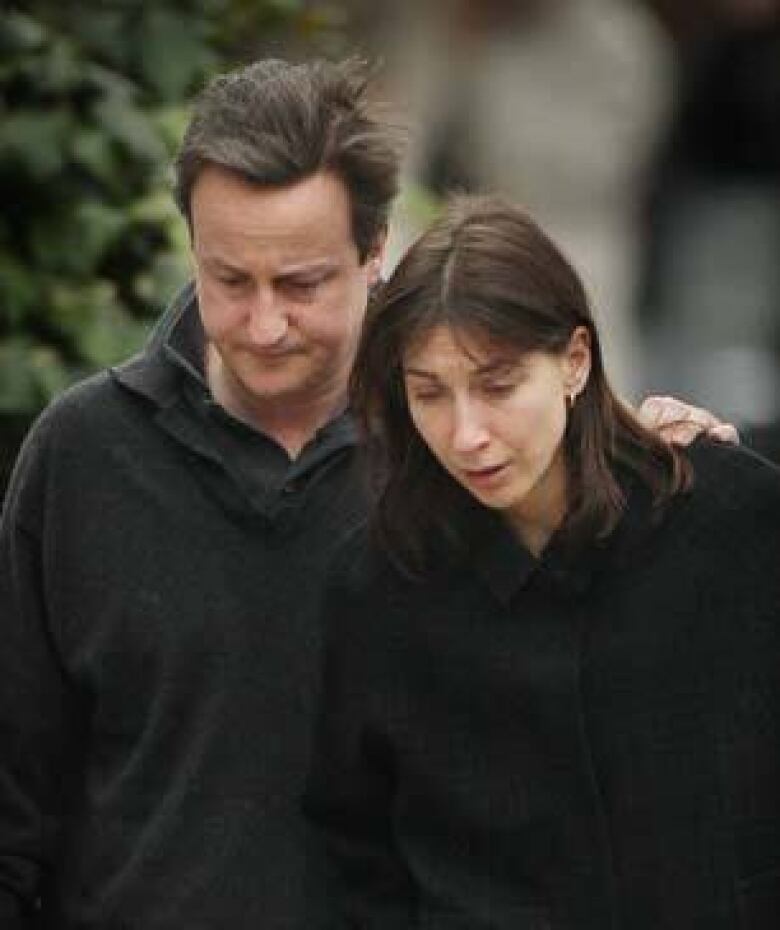The week politics stood still
For a moment this week, politics came to a halt in Britain. The recession was set aside. No one talked about tumbling stocks or bank bailouts or the latest polling numbers.
Indeed, for the first time in more than a decade, prime minister's questions, the British version of question period in the Canadian House of Commons, was cancelled.

All of these things paled in the light of a single, personal tragedy that befell the family of the man who, polls suggest, will become Britain's next prime minister.
Ivan Cameron, the first-born son of Britain's Conservative leader David Cameron, was born April 8, 2002. From the start, his was a life fraught with painful challenges as Ivan suffered from a severe form of cerebral palsy and epilepsy.
He could not speak or walk and spent too many days of his young life in hospital. His parents knew how fragile their son was and that he could be taken from them at any moment.
Earlier this week, Ivan was having a difficult night of violent seizures. His parents took him to St. Mary's hospital in London. Doctors and nurses tried to help.
But on Wednesday morning, David and Samantha Cameron were introduced to the most devastating loss a parent can endure. At just six years of age, Ivan Cameron died of acute abdominal failure.
United in sorrow
Later that day, David Cameron was due to stand in Parliament and call the Labour government to account on its economic policies. But for the Tory leader it must have all seemed distant, irrelevant, a million miles away.
As news of Ivan's death emerged, the decision was taken to suspend question period. The last time that happened was 1994 after then Labour leader John Smith died.

In the House, Prime Minister Gordon Brown rose to offer his condolences to a political rival. Brown spoke from painful experience.
He and Cameron now share a common burden of grief, having both lost a child. Brown's daughter, Jennifer Jane, suffered a brain hemorrhage and died just 10 days after she was born in January 2002. He and his wife now have two boys, one of whom suffers from cystic fibrosis.
Brown's voice trembled as he stood in Parliament to remember Ivan Cameron.
"I know that in an all too brief life, he brought joy to all those around him and I know also that for all the days of his life, he was surrounded by his family's love," the prime minister said.
"Every child is precious and irreplaceable and the death of a child is an unbearable sorrow that no parent should ever have to endure. Politics can sometimes divide us, but there is a common human bond that unites us in sympathy and compassion at times of trial and in support for each other at times of grief."
"A magical child"
As the parent of a disabled child, David Cameron never tried to hide Ivan away, calling his son "a magical child."
In fact, Cameron was so open about Ivan's disability that some accused him of using his son for political ends. But Cameron, who has two other children, is widely said to have been genuinely transformed by the birth of his son.
The realization of his son's condition hit him "like a freight train," Cameron once said. And through the years, caring for someone like Ivan seemed to soften Cameron, who comes from a privileged background and who is sometimes seen as out of touch with regular people.
Cameron spent many nights in hospital with his son and the experience turned him into a strong supporter of Britain's National Health Service.
In a speech in 2006 he said, "When your family relies on the NHS all the time — day after day, night after night — you really know just how precious it is.
"So for me, it's not just a question of saying the NHS is safe in my hands. My family is so often in the hands of the NHS. So I want them to be safe there."
Cameron, of course, is a politician who hopes to be the next prime minister of Britain.
Inevitably, questions are being asked about how this tragic incident will affect the way the British public perceives him and how that will influence his chances.
But on a week when politics came to a halt, the answers to those questions will have to wait. Cameron has taken two weeks leave to be with his family, to remember his son and to grieve.

